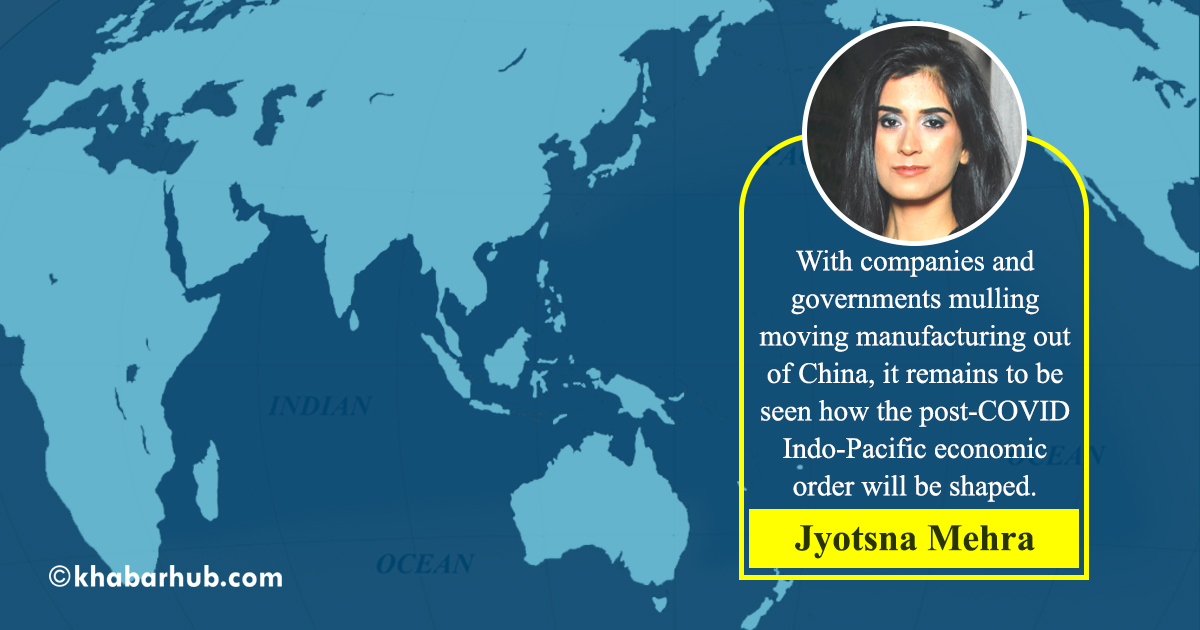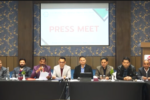The COVID-19 pandemic has pushed the world into unprecedented uncertainty with countries under total lockdowns — reeling with painful numbers of deaths and staring at potential economic collapse.
The anger of many is directed at China that could have contained between 65 to 95 percent of the spread of the deadly disease, had it carried out policy interventions in Wuhan earlier.
Instead, the Chinese authorities chose to cover up the news of the initial outbreak in the city, downplayed the impact of the disease to the world, and then churned out fresh allegations as the world fumed over the catastrophic global impact of Beijing’s lack of transparency.
Amid this rising global anger, China not only set on a path to deflect responsibility and re-write the COVID-19 history but also grab—what author Bruno Maçães has defined as— a “strategic opportunity”, to emerge out of this mayhem as the ultimate winner.
Albeit driven by events far milder in their immediate global impact than the COVID crisis, governments and strategists have been invested in understanding China’s impact on the world order for some years now.
As the all-powerful West reels with the trauma of the pandemic, China has been presenting an image (likely, falsely) of relative strength.
Plus, China has been advancing its (controversial) “mask diplomacy” as a part of a mega PR campaign to project itself as the world’s savior. So much so that Beijing has even touted a COVID-19 rebranding of the Belt and Road Initiative — the Health Silk Road.
Uncertainties around the crisis and Beijing’s opportunism have got analysts and foreign policy veterans like Kissinger to pen frantic prophecies about the dawn of a new world order.
Albeit driven by events far milder in their immediate global impact than the COVID crisis, governments and strategists have been invested in understanding China’s impact on the world order for some years now.
The development of the Indo-Pacific concept best captures this effort. A clash between the status quo rules-based order and a power-based order advanced by a rising China has played out most visibly in the Indo-Pacific.
China has deployed grey zone tactics to establish control over the South and East China Seas, and has been buying leverage across strategic chokepoints from the western stretches of the Indian Ocean to the Pacific Island nations.
Given the enormous economic and national security ramifications of this outbreak, cooperation to mitigate the pandemic itself will undoubtedly test the partnership between Indo-Pacific countries.
Supported by Beijing’s disinformation campaigns, these efforts aim to refashion the regional order to China’s liking. This has triggered countries such as Japan, India, the US, Australia, France, and the ASEAN member states to formulate their respective outlooks towards the Indo-Pacific, augmenting their maritime cooperation here and investing in infrastructure projects to boost connectivity across this connected region.
With the fear of prolonged national lockdowns and with strained budgets diverted to meeting immediate demands of public health, the ability of these countries to continue putting the money behind their Indo-Pacific visions could be severely affected.
Plus, the outbreak is already impacting their naval power projection capabilities and interoperability efforts with coronavirus-affected aircraft carriers going into quarantine and major naval exercises postponed.
However, even as the world’s attention is geared towards the disastrous pandemic, for China—in the troubled waters of the Indo-Pacific— it has been business as usual. Over the last few days, Vietnam and Japan have faced repeated disturbances with China in the South China Sea and the East China Sea respectively.
With the reduced presence of the US in the region reduced due to the ongoing crisis, a Chinese carrier strike group was spotted recently in the volatile Miyako Strait, alerting both Japan and Taiwan. In fact, since the coronavirus outbreak, Taiwan has seen increased Chinese drills near the island-state.
This only points towards the need for sustained cooperation among the Indo-Pacific partners is to ensure that China does not exploit the dire situation to alter the regional order even further.
It appears that despite serious budgetary and logistical constraints, these countries are trying to push against these attempts. Some smaller joint naval operations — such as the ones between the US Navy and Japanese Maritime Self Defense Force in the East China Sea and the Andaman Sea — have been allowed to take place.
Key equipment purchases and defense modernization efforts are also continuing—albeit at an expectedly slower rate. In fact, the US Indo-Pacific Command has recently submitted a request for additional funding of USD 20 Billion — a signal that the region would not be left alone to China’s whims.
Given the enormous economic and national security ramifications of this outbreak, cooperation to mitigate the pandemic itself will undoubtedly test the partnership between Indo-Pacific countries.
Here, they have been stepping up assistance to each other and smaller countries in the region, challenging China’s monopoly over the coronavirus relief narrative.
Having assisted some of its South Asian neighbors by evacuating their citizens from Wuhan, India has been shipping medical supplies to Bhutan, Sri Lanka, and the Maldives, and is expected to send rapid response teams to Kathmandu and Malé soon.
It has also kept army medical teams and two naval ships on standby for regional assistance, and has included the US and ‘friendly’ countries in South Asia and the Indian Ocean Region in its list of nations that will get priority access to the coveted hydroxychloroquine drug — reflective of the importance it accords to them.
For its part, the US has committed a relatively large sum of USD 500 million in humanitarian assistance some of which is directed towards South East Asia, South Asia and Pacific Island countries.
The Pacific Islands have been hosting Beijing’s fervent attempts to compete for soft power against Australia. In response to China’s overtures to it’s ‘near abroad’, Canberra has pledged that the Pacific Island nations and Timor-Leste where it has been sending food and medical supplies will be the “focus of its international support” on COVID-19.
Not only have countries in the Indo-Pacific signaled their intent to maintain defense commitments in the Indo-Pacific, they have also stepped up their cooperation to augment the region’s capacity to fight the pandemic.
Vietnam and Taiwan have also emerged as key players in the region supplying emergency shipments of face masks to affected countries. In addition to offering humanitarian assistance, key Indo-Pacific countries — US, Japan, Australia, India, Vietnam, South Korea, and New Zealand — have set up a virtual COVID-19 policy coordination mechanism.
A group which glaringly excludes China, it has also unofficially dubbed the “Quad-Plus” — in reference to the group of India, Japan, Australia and the US that is viewed unfavorably in Beijing as a containment plot.
In conversations with each other on the pandemic, the Quad countries have repeatedly expressed concern over the impact of the outbreak on the “Indo-Pacific region”.
The group’s drawing of links between Indo-Pacific security and a pandemic that spread to the world from China is also meant to signal collective resolve to continue pushing against Beijing’s attempts to challenge the regional order.
While China is attempting to cast a new international order out of the COVID-19 catastrophe, all is not lost on others resisting these changes.
Not only have countries in the Indo-Pacific signaled their intent to maintain defense commitments in the Indo-Pacific, they have also stepped up their cooperation to augment the region’s capacity to fight the pandemic.
With companies and governments mulling moving manufacturing out of China, it remains to be seen how the post-COVID Indo-Pacific economic order will be shaped.
(The writer is Consulting Editor at the Kootneeti, India, and holds a Master’s degree in South Asian Studies from University of Oxford, United Kingdom.)









Comment